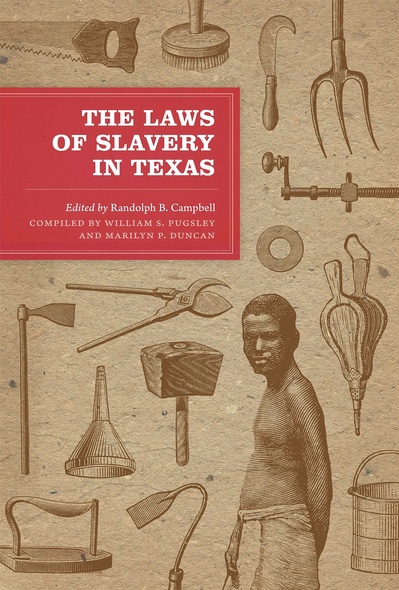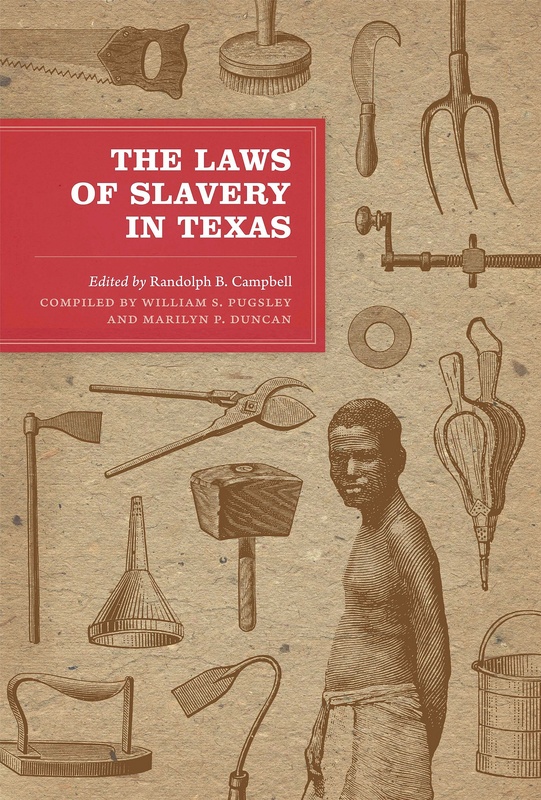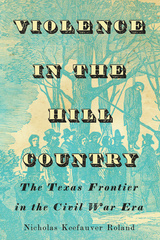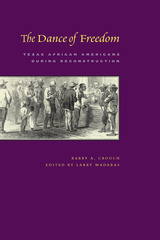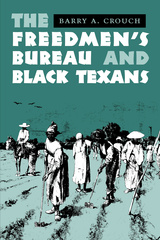The Laws of Slavery in Texas
Historical Documents and Essays
The laws that governed the institution of slavery in early Texas were enacted over a fifty-year period in which Texas moved through incarnations as a Spanish colony, a Mexican state, an independent republic, a part of the United States, and a Confederate state. This unusual legal heritage sets Texas apart from the other slave-holding states and provides a unique opportunity to examine how slave laws were enacted and upheld as political and legal structures changed. The Laws of Slavery in Texas makes that examination possible by combining seminal historical essays with excerpts from key legal documents from the slave period and tying them together with interpretive commentary by the foremost scholar on the subject, Randolph B. Campbell.
Campbell's commentary focuses on an aspect of slave law that was particularly evident in the evolving legal system of early Texas: the dilemma that arose when human beings were treated as property. As Campbell points out, defining slaves as moveable property, or chattel, presented a serious difficulty to those who wrote and interpreted the law because, unlike any other form of property, slaves were sentient beings. They were held responsible for their crimes, and in numerous other ways statute and case law dealing with slavery recognized the humanness of the enslaved. Attempts to protect the property rights of slave owners led to increasingly restrictive laws—including laws concerning free blacks—that were difficult to uphold. The documents in this collection reveal both the roots of the dilemma and its inevitable outcome.
Randolph B. "Mike" Campbell is Regents Professor of History at the University of North Texas and editor of the Southwestern Historical Quarterly.
William S. Pugsley is Executive Director of the Texas Supreme Court Historical Society.
Marilyn P. Duncan is Consulting Editor for the Texas Supreme Court Historical Society's History Book Project.
- Foreword (Joe R. Greenhill)
- Project Director's Foreword (Joseph W. McKnight)
- Acknowledgments
- A Note on Editorial Style
- Introduction. Human Chattels: The Laws of Slavery in Texas (Randolph B. Campbell)
- 1. Laws on Slavery in Mexican Texas, 1821-1836
- Legal Documents
- Empire of Mexico, Colonisation Law of January 4, 1823
- Stephen F. Austin's Colony Criminal Regulations, 1824, Articles 10-14
- Congress of the United Mexican States, Decree on the Slave Trade in Mexico, July 13, 1824
- Constitution of Coahuila and Texas, March 11, 1827, Article 13
- State of Coahuila and Texas, Decree No. 18, September 15, 1827
- State of Coahuila and Texas, Decree No. 35, November 24, 1827
- State of Coahuila and Texas, Decree No. 56, May 5, 1828
- Republic of Mexico, Decree of April 6, 1830
- State of Coahuila and Texas, Decree No. 190, April 28, 1832
- Articles
- Slavery in Early Texas, I (Lester G. Bugbee)
- Slavery in Early Texas, II (Lester G. Bugbee)
- Legal Documents
- 2. Laws on Slavery in the Republic and Statehood Periods, 1836-1860
- Legal Documents
- Constitution of the Republic of Texas, 1836, General Provisions, Sections 6, 9, 10
- Constitution of the State of Texas, 1845, Article 8
- Articles
- The Law of Slavery in Texas (Randolph B. Campbell)
- The Texas Supreme Court and Trial Rights of Blacks, 1845-1860 (A. E. Keir Nash)
- Cases
- Case Study: One Woman's Fight for Freedom: Gess v. Lubbock, 1851 (Mark Davidson)
- Case Report: Henry B. Hedgepeth and Others v. Felix W. Robertson, 1857
- Legal Documents
- 3. Laws on Free Negroes in the Republic and Statehood Periods, 1836-1860
- Legal Documents
- Republic of Texas Congress, Debate on the Emancipation of Peter Martin, December 1839, and An Act to Authorize Wylie Martin to Emancipate His Slave Peter, January 3, 1840
- Republic of Texas, An Act Concerning Free Persons of Color, February 5, 1840
- Republic of Texas, An Act for the Relief of Certain Free Persons of Color, December 12, 1840
- Article
- The Free Negro in the Republic of Texas: The Extent of Discrimination and Its Effects (Harold Schoen)
- Case
- Case Report: Jesse Benton v. Eli Williams, 1843
- Legal Documents
- 4. Laws on Slavery and Freedom in Confederate and Reconstruction Texas, 1861-1874
- Legal Document
- Secession Convention of Texas, A Declaration of the Causes Which Impel the State of Texas to Secede from the Federal Union, February 2, 1861
- Article
- The End of Slavery in Texas: A Research Note (Randolph B. Campbell)
- Cases
- Case Report: Emancipation Proclamation Cases: W. M. Hall v. T. M. Keese and Dougherty v. Cartwright, 1868
- Case Report: William Garrett v. John H. Brooks, 1874
- Legal Document
- Notes
- Selected Bibliography
- Index

